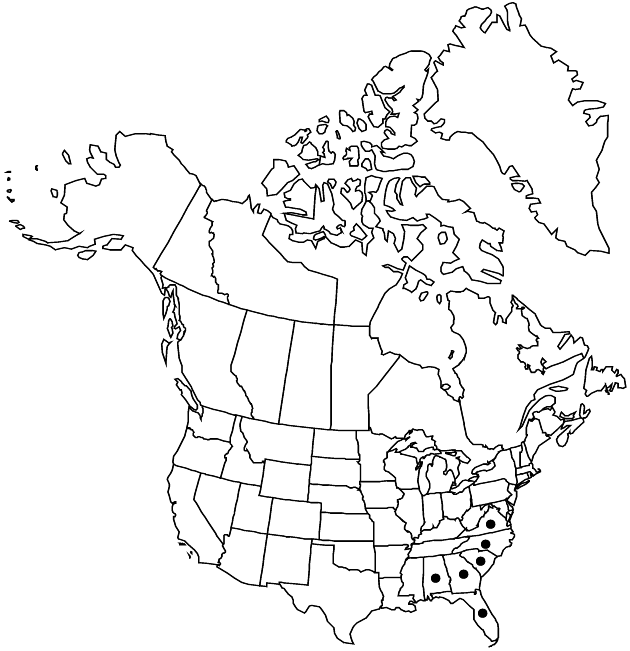familyAsteraceae
genusSolidago
sectionSolidago sect. Solidago
subsectionSolidago subsect. Maritimae
speciesSolidago stricta
subspeciesSolidago stricta subsp. gracillima
Difference between revisions of "Solidago stricta subsp. gracillima"
Sida 20: 1615. 2003.
Endemic
Basionym: Solidago gracillima Torrey & A. Gray Fl. N. Amer. 2: 215. 1842
Synonyms: Aster gracillimus (Torrey & A. Gray) Kuntze S. austrina Small S. perlonga Fernald
FNA>Volume Importer |
imported>Volume Importer |
||
| (2 intermediate revisions by 2 users not shown) | |||
| Line 6: | Line 6: | ||
|place=20: 1615. 2003 | |place=20: 1615. 2003 | ||
|year=2003 | |year=2003 | ||
| + | }} | ||
| + | |special_status={{Treatment/ID/Special_status | ||
| + | |code=E | ||
| + | |label=Endemic | ||
}} | }} | ||
|basionyms={{Treatment/ID/Basionym | |basionyms={{Treatment/ID/Basionym | ||
| Line 63: | Line 67: | ||
|publication title=Sida | |publication title=Sida | ||
|publication year=2003 | |publication year=2003 | ||
| − | |special status= | + | |special status=Endemic |
| − | |source xml=https:// | + | |source xml=https://bitbucket.org/aafc-mbb/fna-data-curation/src/2e0870ddd59836b60bcf96646a41e87ea5a5943a/coarse_grained_fna_xml/V19-20-21/V20_291.xml |
|tribe=Asteraceae tribe Astereae | |tribe=Asteraceae tribe Astereae | ||
|genus=Solidago | |genus=Solidago | ||
Latest revision as of 20:01, 5 November 2020
Basal leaves sparsely to obviously serrate. Arrays sometimes with much elongate proximal arching branches. 2n = 18, 36.
Phenology: Flowering Aug–Oct.
Habitat: Swamps, boggy depressions, and other moist places, blackish sandy muck, sometimes dry sandy soils, mostly inner coastal plain
Elevation: 20–300 m
Distribution

Ala., Fla., Ga., N.C., S.C., Va.
Discussion
Subspecies gracillima occurs away from the coast to the edge of the piedmont and usually has arching proximal array branches, several of which can be greatly elongated. Some plants from Alabama, Georgia, and the Carolinas treated as Solidago austrina are included here, but may deserve recognition as a variety. Solidago perlonga appears to belong in this subspecies: its arrays would be very aberrant if included in the typical subspecies.
Selected References
None.
Lower Taxa
None.